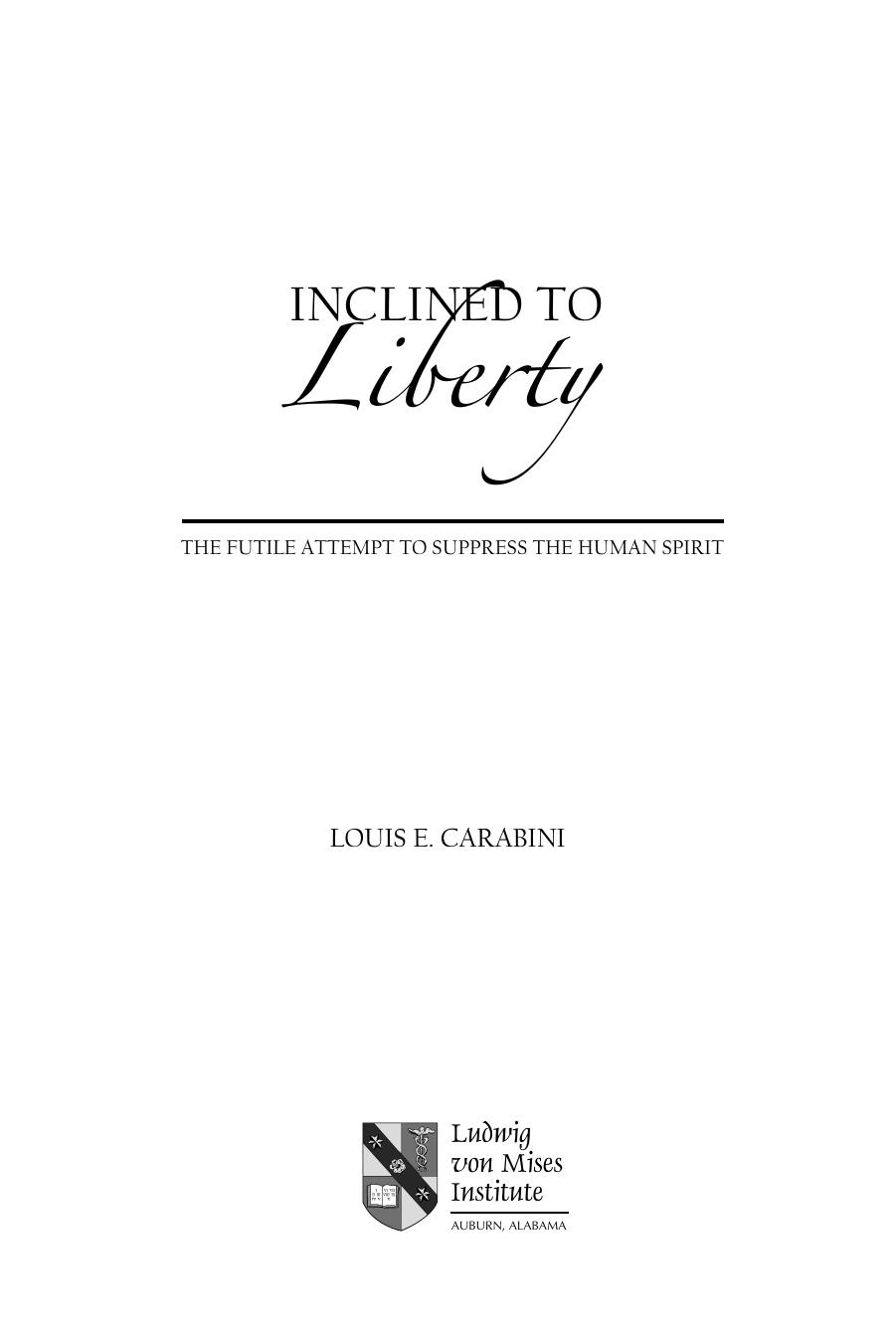Inclined to Liberty by Louis E. Carabini

Author:Louis E. Carabini
Language: eng
Format: epub, pdf
ISBN: 9781933550299
Publisher: Ludwig von Mises Institute
19
JOBS AND PROSPERITY
JOBS THEMSELVES DO NOT necessarily create prosperity; prosperity is created by the production of goods and services that people value. Make-work jobs that do not generate goods or services valued by others will not generate prosperity.
To illustrate, let’s say a fire damages a house in a community. The local carpenter is not saddened, since this fire will give him an opportunity to earn a handsome sum. Of course, what the carpenter earns, the homeowner loses. “Well,” you might argue, “it’s a zero-sum game in terms of money, but the carpenter has a job, and it is his work on the house that is a net positive for the community.”
However, the unseen part of the picture is what the carpenter would have been doing if he were not restoring the house. The community is no better off after restoring the house than it was before the destruction. Thus, the community has not gained prosperity.31 If the carpenter had, instead, built a new house, the community would have increased its prosperity by gaining a new house.
One may ask: What if the carpenter were idle at the time of the fire damage to the house? If a given vocation is filled with idle time, it means that the services being offered have a lower preference by consumers than the quantity available. In a community, vocations are chosen that provide services where consumer preferences have eliminated idle time, while the vocations experiencing idle time are avoided. This free-market feedback will lead to a higher overall prosperity of the community, because productivity will progress in the direction of greater preferences that actually reflect the subjective values of individual consumers. Therefore, if idle time were to be filled with make-work projects, the workers attracted to those projects would be diverted from otherwise productive occupations that offered services that consumers prefer.
If jobs and work are benefits for the community, we could propose burning all the houses to keep all members of the community busy working. We are, of course, struck by the absurdity of such a notion, because common sense tells us so. We envision mass displacement of people in the community who would have to divert their time and energy from their previous activities to tasks that will merely restore their community to its condition before the mass destruction. However, once the restoration begins, some might conclude that all is not bad—after all, everybody is working and earning money. As in wartime, we sense prosperity because we are all hard at work producing tanks, ships, and myriad other war-related materials, but we lose sight of the cars, yachts, and countless other useful goods that do not get produced during that same period and thus cannot be enjoyed. We lose all the unseen things that would have been produced by those soldiers and workers who are now marching, fighting, and laboring for a different purpose.
Download
This site does not store any files on its server. We only index and link to content provided by other sites. Please contact the content providers to delete copyright contents if any and email us, we'll remove relevant links or contents immediately.
International Integration of the Brazilian Economy by Elias C. Grivoyannis(111057)
The Radium Girls by Kate Moore(12028)
Turbulence by E. J. Noyes(8047)
Nudge - Improving Decisions about Health, Wealth, and Happiness by Thaler Sunstein(7706)
The Black Swan by Nassim Nicholas Taleb(7129)
Rich Dad Poor Dad by Robert T. Kiyosaki(6632)
Pioneering Portfolio Management by David F. Swensen(6300)
Man-made Catastrophes and Risk Information Concealment by Dmitry Chernov & Didier Sornette(6019)
Zero to One by Peter Thiel(5801)
Secrecy World by Jake Bernstein(4752)
Millionaire: The Philanderer, Gambler, and Duelist Who Invented Modern Finance by Janet Gleeson(4478)
The Age of Surveillance Capitalism by Shoshana Zuboff(4292)
Skin in the Game by Nassim Nicholas Taleb(4248)
The Money Culture by Michael Lewis(4207)
Bullshit Jobs by David Graeber(4190)
Skin in the Game: Hidden Asymmetries in Daily Life by Nassim Nicholas Taleb(4004)
The Dhandho Investor by Mohnish Pabrai(3764)
The Wisdom of Finance by Mihir Desai(3746)
Blockchain Basics by Daniel Drescher(3581)
